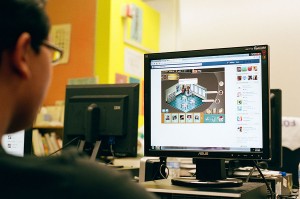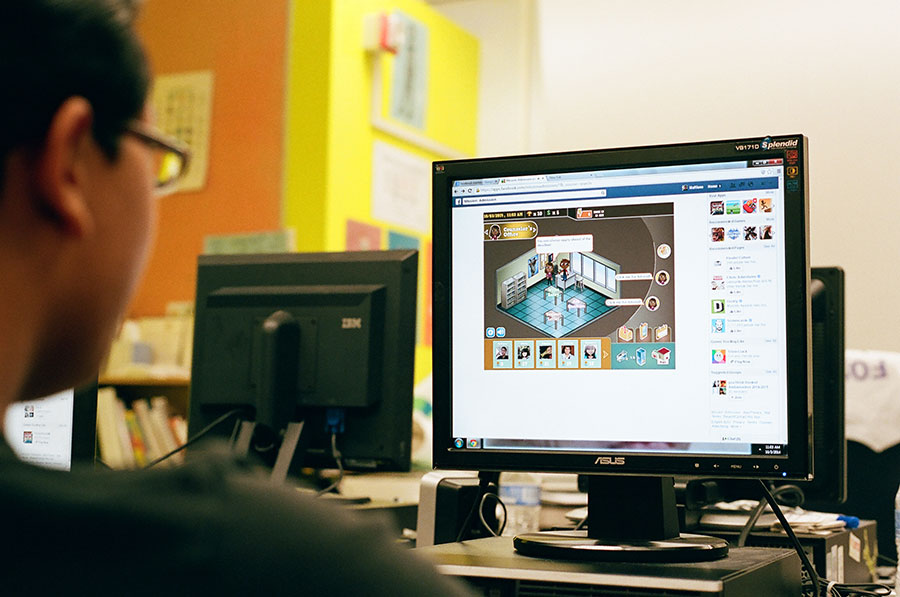Researchers develop admission game
Professors from USC’s Pullias Center for Higher Education developed a video game called “Mission: Admission” meant to encourage low-income students to attend college. It aims to teach high school students the importance of meeting deadlines and learning the application process.

Going virtual · Students who play the “Mission Admission” computer game had more knowledge about the application process, research showed. – Photo courtesy of Zoe Corwin
“The game is really targeted at first generation students — students who don’t have a lot of support at their school,” said Zoe Corwin, research director at the Pullias Center. “Some might have support from their families, but they might not know much about the process. They learn strategies, and they get to practice those strategies in a safe place. And hopefully, they get to apply them to the real-life application process. It’s a non-threatening way to learn strategies for applying to college.”
Players select a character and set educational goals for him or her. After inputting a family income, students learn about the financial aid process from the app, which is currently a Facebook game. The characters need to keep up with counseling meetings and attend writing workshops. With each step forward, the student gets closer and closer to being prepared to apply to college. The tasks to be completed by the player of the game are meant to familiarize players with college entrance exams, application essays and necessary financial aid materials.
“Our research center partnered with USC’s Game Innovation Lab and local high school students,” Corwin said. “We conceptualized the game and did a lot of play testing with out target audience. We made many changes based on their feedback and research findings. It was a collaborative and productive effort.”
Students at the Foshay Learning Center, a Los Angeles Unified School District campus near USC, were among the first to test the application. According to the Los Angeles Times, one student’s reaction to the video game was exactly what USC education and technology professors were hoping for. Alex Chinchilla, a high school senior at the Foshay Learning Center, played the video game, and his virtual failures made him realize the work that he should put in to his actual college applications.
According to the L.A. Times, some students complained that the energy that allows students to move through the game was too slow and that the design of the game was not modern enough. Most, however, understood and appreciated its overall goal and educational purpose.
Initial research found that the students who played “Mission: Admission” more than once demonstrated a wider knowledge about the application process and financial aid documents and deadlines than those who did not, according to the L.A. Times. The app utilizes technology to broaden a high school student’s college search beyond just schools that use the Common Application.
“This new college admissions-related application attempts to appeal to “our increasingly technology-focused culture,” David Hawkins, public policy and research director at the National Association for College Admission Counseling, told the L.A. Times.
The Game Innovation Lab at the School of Cinematic Arts has been working on college admission applications for around five years. The U.S. Department of Education awarded USC a $3.2 million grant towards this project to promote higher education. USC plans to use the grant to move the game from Facebook to a mobile phone app or Internet platform in order to access more students.
“We are expanding our reach to 50 schools throughout the school of California,” Corwin said. “We are also doing a much more in-depth longitudinal study which is going to study the effect of the game on college outcomes.”
Before the federal grant, the development of the app cost $4 million, including the sponsorship from USC, the Gates Foundation and the Gilbert Foundation.
USC owns a share of FutureBound Games, the new company built to establish a future for the game. In addition to moving it off Facebook, the company plans to keep the game free for students to play in the future.to play in the future.

